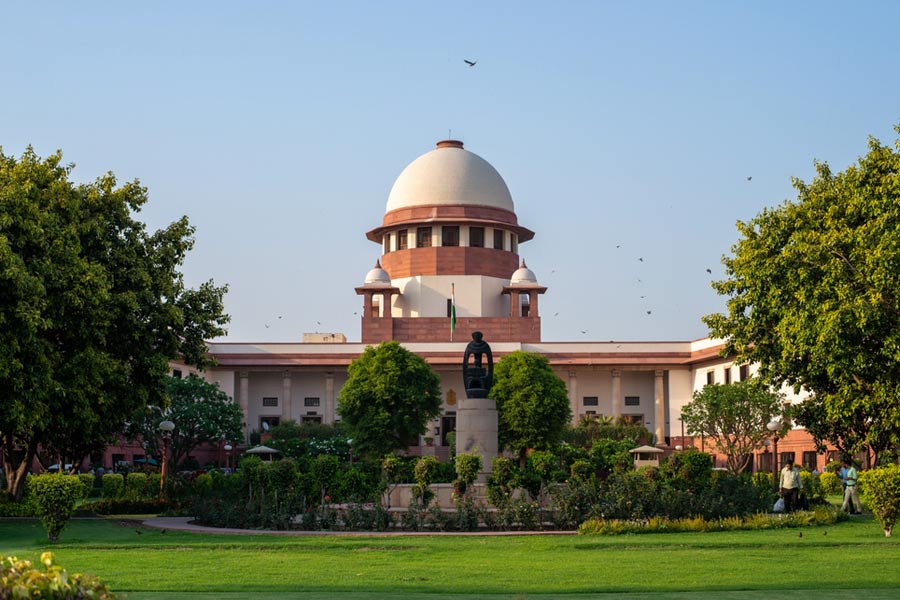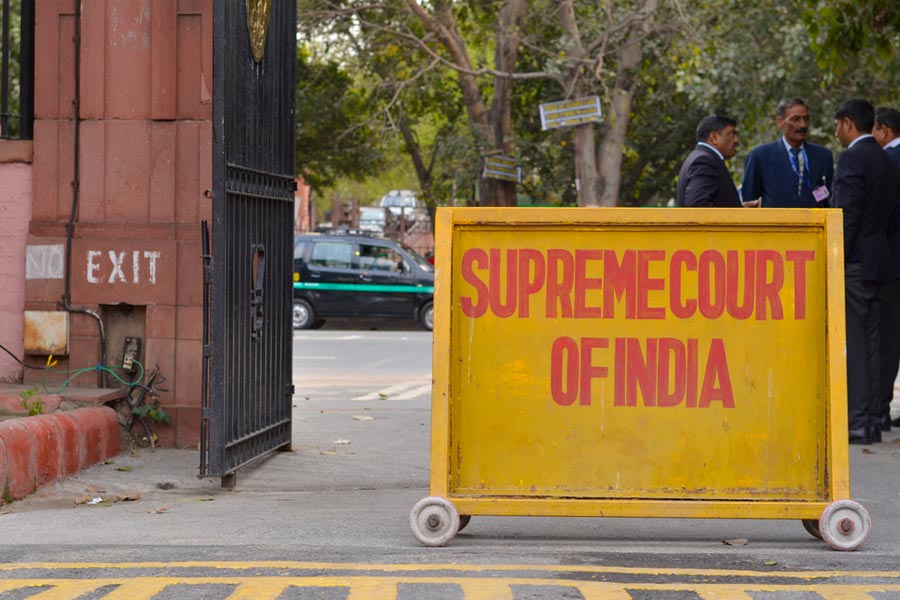“Some things are best left unsaid,” the second seniormost judge in the country said in the Supreme Court on Tuesday, after three PILs for contempt proceedings against the Centre were deleted without explanation from the list of matters to be heard during the day.
Justice Sanjay Kishan Kaul, heading the bench that was hearing the PILs against the Centre for repeatedly delaying the appointment and transfer of judges, had on the last date directed that the matter be listed for hearing on December 5. Despite the judicial direction, the matter was not listed on Tuesday.
Advocate Prashant Bhushan, appearing for one of the petitioners, the NGO Common Cause, raised the omission before the bench by way of protest.
Justice Kaul, who was sitting in a bench also comprising Justice Sudhanshu Dhulia, responded that he was sure Chief Justice of India D.Y. Chandrachud knew of the deletion although he himself was not aware how and why this was done.
“I clarify that I had not deleted it or expressed unwillingness to take it up. I am sure the CJI is aware of it. Some things are best left unsaid. We will see,” Justice Kaul said.
The Supreme Court is the defender of the rule of law in the country.
The bench headed by Kaul had at the earlier hearing pulled up the Narendra Modi government for adopting a “pick and choose” method in clearing the appointment and transfer of judges in violation of the memorandum of procedure (MoP) that clearly states that once the collegium led by the Chief Justice reiterates its decision, it is binding on the Centre.
Justice Kaul is due to retire on December 25. The court goes into vacation before that.
“It is very strange that it is deleted. A judicial order is there to list it today,” Bhushan said, adding, “Your lordship should ask for an explanation from the registry.”
Under the Supreme Court rules, the Chief Justice is not only the judicial head of the country but also the administrative head of the court. He is the “master of roster” and the powers to assign all matters and benches vest with the CJI.
The bench headed by Justice Kaul had been keeping the government on its toes on transfers and appointments.
At an earlier hearing, it had said: “This selective business… this pick-and-choose method must stop. This is not an off-hand remark, but something I have discussed with my colleagues in the collegium....”
This was not the first time the bench had expressed displeasure with the Centre for not clearing the names all together, but withholding some names and clearing others, thus affecting the seniority of the judges recommended by the collegium.
The bench was dealing with separate applications moved by the Bengaluru Advocates Association, Supreme Court Bar Association and the NGO Common Cause, challenging the Centre’s blocking of the collegium’s recommendations despite reiteration.
Under the Memorandum of Procedure which governs the appointment process, once the collegium reiterates a name, the Centre has no option but to clear the same. Despite the procedure being clear, the Centre had remained adamant.
The bench said the “troubling aspect” was that when names are cleared in instalments, then the candidates lose their seniority. For instance, in the case of Punjab and Haryana High Court, the bench said it had cleared five names. But the government chose to clear the candidates mentioned at number 3, 4 and 5 while withholding the names at number 1 and 2. The names are sent in order of seniority.
“They lost out seniority. That is not acceptable. I will never be able to suggest to anyone to accept judgeship who has reasonable practice. Why should he put his neck on the block?” Justice Kaul had asked.
Senior advocate Arvind Datar, appearing for the Bengaluru Association, told the bench that the court should pass an order under Article 141 laying down guidelines for clearing appointments strictly on the basis of recommendations made by the collegium.
Under Article 141, all authorities, both judicial and civil, have to comply with any order passed by the Supreme Court.
Datar said the practice of withholding some names and clearing some is not a new phenomenon, but something that is being carried out by successive governments since 2005. Datar referred to the time when the then CJI Y.K. Sabharwal had a tough time getting the names cleared.











